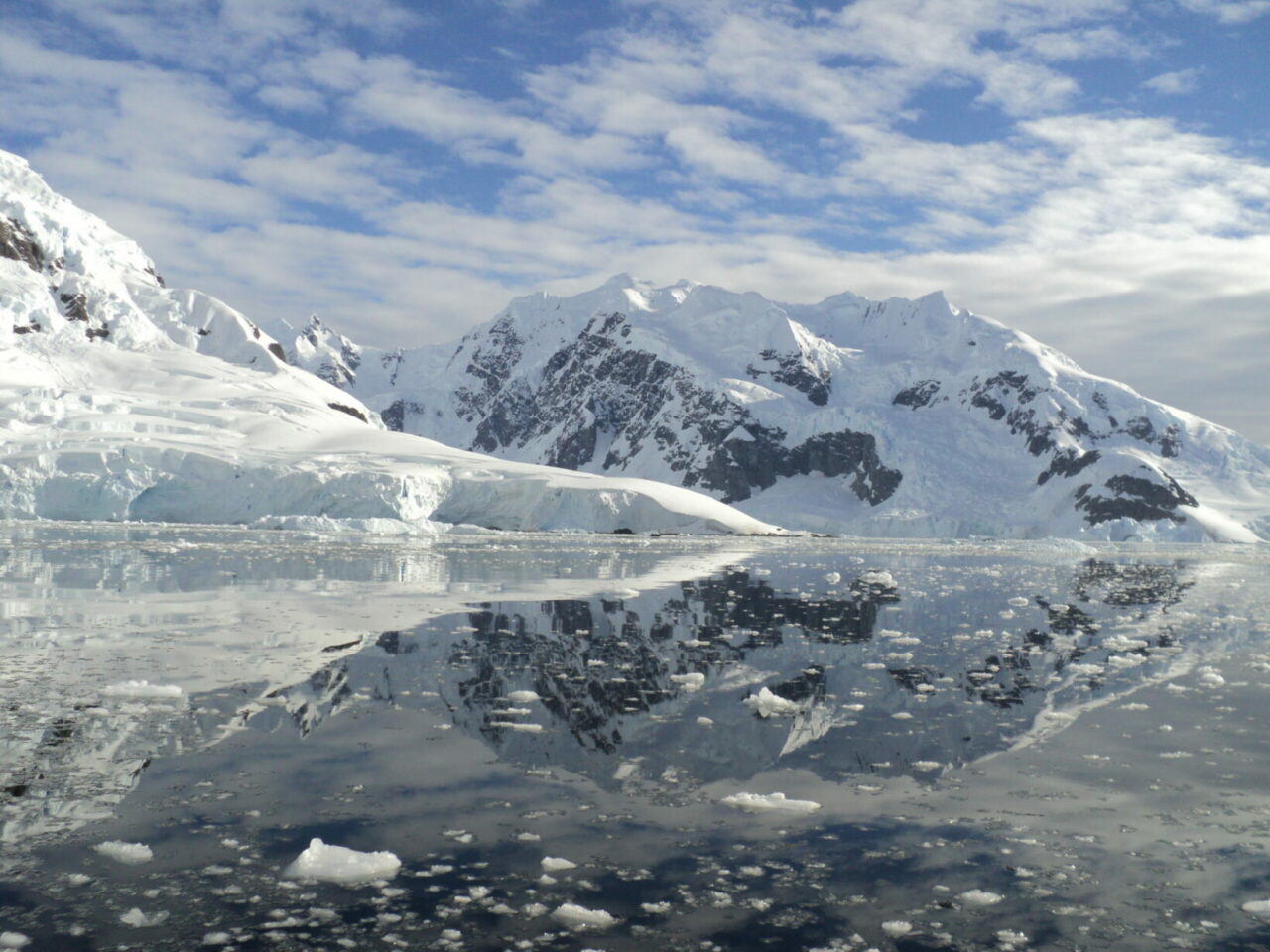By Sol Inés Peca
Montreal winters may be icy, cold and tiring, but the frigid and remote Antarctic can be downright brutal. Third-year McGill medical student Laura Drudi recently left the coziness of her urban habitat for unknown wilderness in the southernmost point on earth as part of the Students on Ice Program. She was one of 50 students from around the world to participate.
“One of the most memorable moments was when our vessel, the M/V Ushuaia, made its way into Paradise Bay, as I admired the scenery of the cove and majestic waters and felt the surrounding peace and tranquility,” recalls Drudi, who spent a year fundraising and planning for her trip. “The silence resonated throughout the cove. Then, sounds began to emerge – the cracking of ice, petrel sea-birds flying to their nesting ground and a lone penguin swimming in the cove. This name really befits this place, as it is truly paradise on Earth.”
Students on Ice is designed to educate youth about climate change and more specifically how human activity is affecting the Polar Regions. “There were many different research groups and workshops on the expedition including oceanography, glaciology, marine biology and geology and groups on first aid and remote medicine,” explains Drudi. Through these interdisciplinary activities, the expedition gives participants insight, knowledge and a tangible experience of climate change and how it is affecting global health.

As one of the travelers on board, Drudi also faced the challenges and dangers of distant regions during her expedition. “Antarctica is one of the most remote and isolated areas on our planet, making it a great analogue for the space environment, and as such a great platform for research in this field,” explains Drudi. “This was a great experience given my avid interest in the space industry and my passion for pursuing a career as an aerospace physician.”
Among the many environmental discoveries, Drudi and her fellow travelers also learned of the health hazards of remote environments – including sea sickness and its pathophysiology and pharmacological countermeasures. “Remote medicine applications will be useful to those of us venturing out of Earth’s gravity, and I hope to one day be a leader in this area,” says Drudi.
As part of her expedition, Drudi and her group also used small boats called zodiacs to explore Antarctic waters. “The weather wasn’t ideal and after sailing in the cold, wet and windy weather, I realized how unforgiving Antarctica might be,” says Drudi. Despite this, she wants to go back for more. “My future goal is to return to Antarctica as a physician and participate in remote medicine research at McMurdo Station in McMurdo Sound, Antarctica.”
Montreal winters may be icy, cold and tiring, but the frigid and remote Antarctic can be downright brutal. Third-year McGill medical student Laura Drudi recently left the coziness of her urban habitat for unknown wilderness in the southernmost point on earth as part of the Students on Ice Program. She was one of 50 students from around the world to participate.

“One of the most memorable moments was when our vessel, the M/V Ushuaia, made its way into Paradise Bay, as I admired the scenery of the cove and majestic waters and felt the surrounding peace and tranquility,” recalls Drudi, who spent a year fundraising and planning for her trip. “The silence resonated throughout the cove. Then, sounds began to emerge – the cracking of ice, petrel sea-birds flying to their nesting ground and a lone penguin swimming in the cove. This name really befits this place, as it is truly paradise on Earth.”
Students on Ice is designed to educate youth about climate change and more specifically how human activity is affecting the Polar Regions. “There were many different research groups and workshops on the expedition including oceanography, glaciology, marine biology and geology and groups on first aid and remote medicine,” explains Drudi. Through these interdisciplinary activities, the expedition gives participants insight, knowledge and a tangible experience of climate change and how it is affecting global health.

As one of the travelers on board, Drudi also faced the challenges and dangers of distant regions during her expedition. “Antarctica is one of the most remote and isolated areas on our planet, making it a great analogue for the space environment, and as such a great platform for research in this field,” explains Drudi. “This was a great experience given my avid interest in the space industry and my passion for pursuing a career as an aerospace physician.”
Among the many environmental discoveries, Drudi and her fellow travelers also learned of the health hazards of remote environments – including sea sickness and its pathophysiology and pharmacological countermeasures. “Remote medicine applications will be useful to those of us venturing out of Earth’s gravity, and I hope to one day be a leader in this area,” says Drudi.
As part of her expedition, Drudi and her group also used small boats called zodiacs to explore Antarctic waters. “The weather wasn’t ideal and after sailing in the cold, wet and windy weather, I realized how unforgiving Antarctica might be,” says Drudi. Despite this, she wants to go back for more. “My future goal is to return to Antarctica as a physician and participate in remote medicine research at McMurdo Station in McMurdo Sound, Antarctica.”
